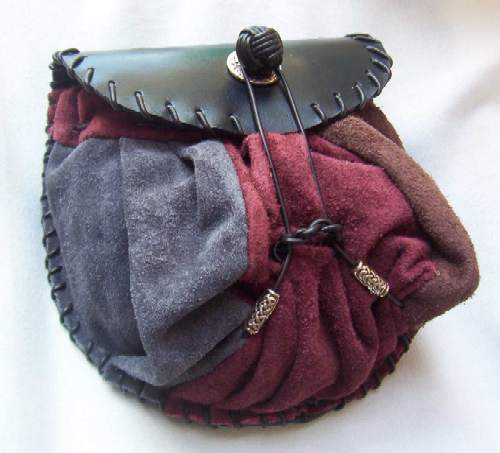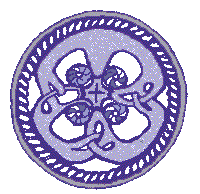
Drawing from the Scottish Traditions, I bring you wedding gifts, accessories and favours. Wedding Favours are not part of the Scottish traditions at all (favours are Italian, did you know?), but I've worked hard to bring you beautiful, genuine traditions that might serve as favours, adornments for the dress or gifts to the couple or guests. I think you'll find these unique. Unfortunately, the items on this page are only available to a wedding that I am attending. They cannot be purchased by post.
The Wedding Bann Brigit's Cross (Gift) Small Brigit's Crosses (favour) Sporans (gift)Am Bann ~ The Bann
The bann will bind your hands during our ceremony. A couple can of course provide their own bann for the ceremony. There are three types of wedding bann that I offer: two types in plaid or tartan and one type in hand-woven wool. The plaid / tartan banns can be either a simple bann of one tartan (or plain wool), or a more elaborate bann using of two tartans (and possibly other materials such as leather). The hand woven bann can be in colours to suit your wedding theme. Examples of all are below.
The Simple Tartan Bann
A single length of tartan in clann colours or one of the national tartans, such as Scottish National or Scotland Forever, or plain, earthy-coloured fabric such as Harris Tweed. I prepare the bann for you.
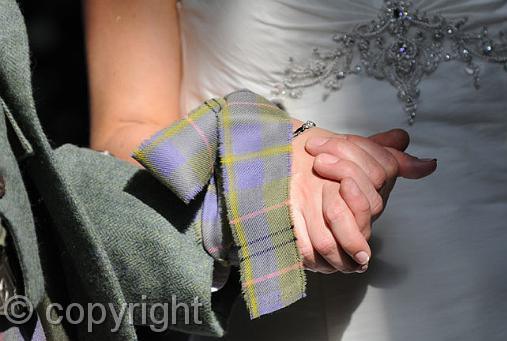
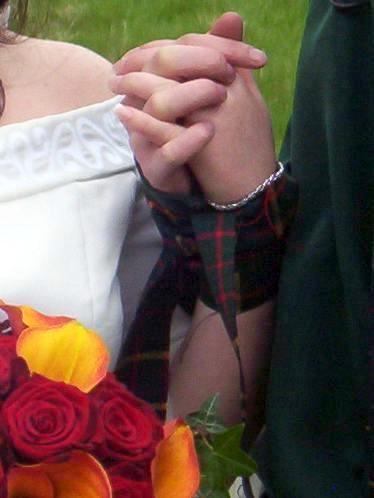
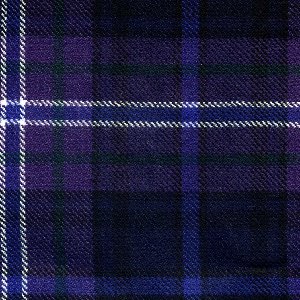
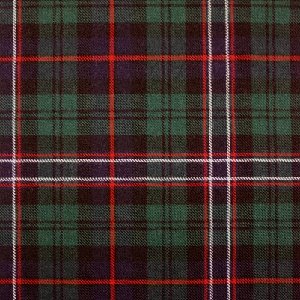
These are examples of simple, plaid banns Scotland Forever (purple) - - Scottish National tartan
A More Elaborate Bann
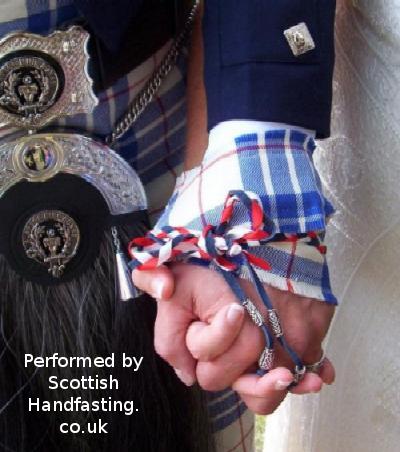
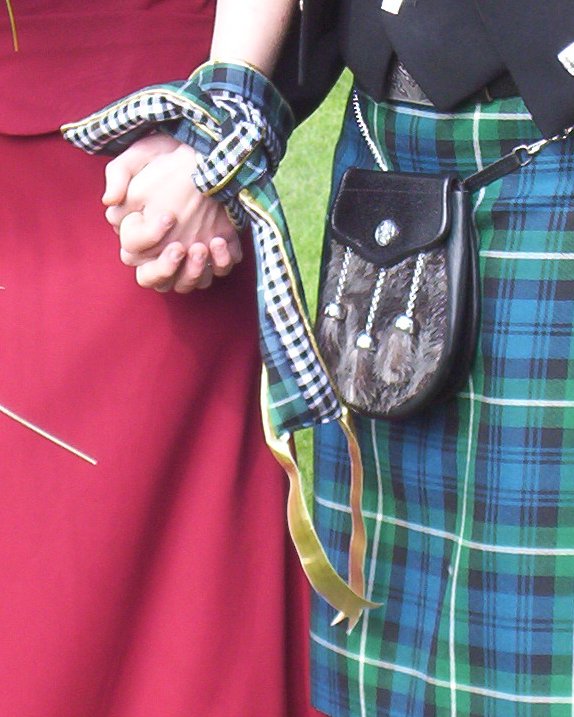
Banns can be made with tartan(s) and other materials. Often it is two family tartans (bride and groom's) sewn back to back or with leather or silk tassles, added. The choice is yours. For the exchange asked for such a bann, see the booking/ fees page and be sure to select Handfasting to see the bann options.
A Woven Bann
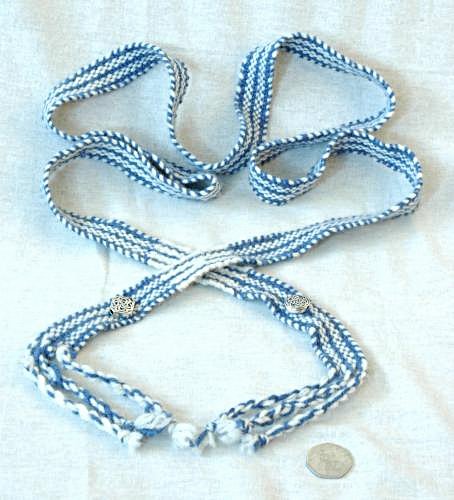
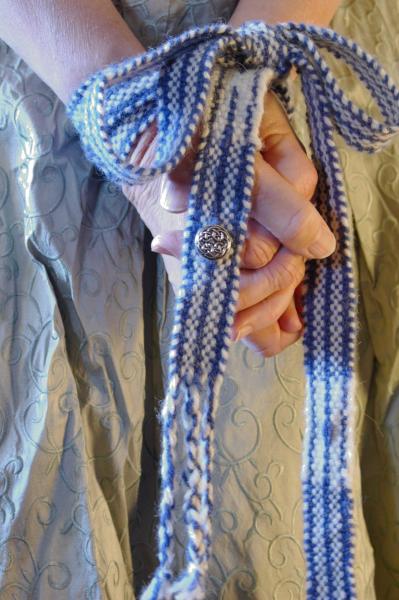
Perhaps the most traditional, I weave these traditional "inkles" or ribbons / straps using local, Perthshire, wools from Scottish sheep, dyed by the shepherd using protein dyes. The couple can choose the colours to suit the wedding theme. The inkle bann can even be worn into the ceremony as a belt around the waist of the wedding dress, somewhat like the Medieval drop-waist belts.
The inkles can be decorated with Celtix beads from Wales.
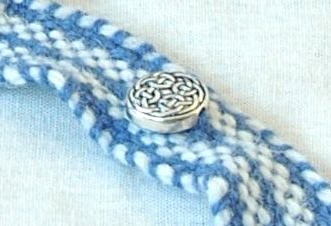
The choice of beads:
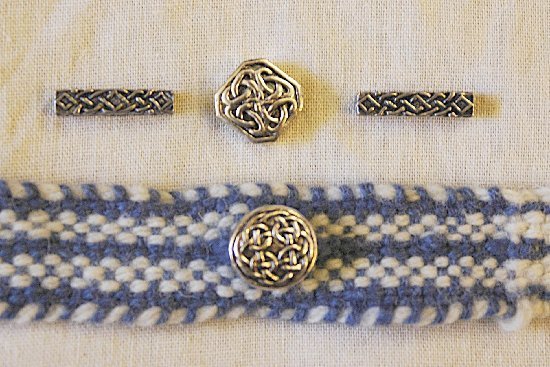
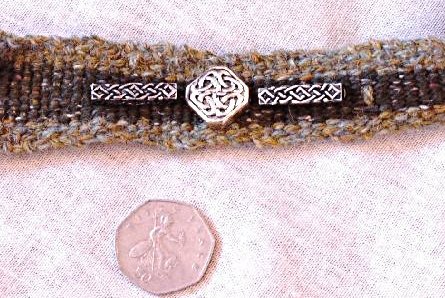
The current stock of banns and colours is thus:
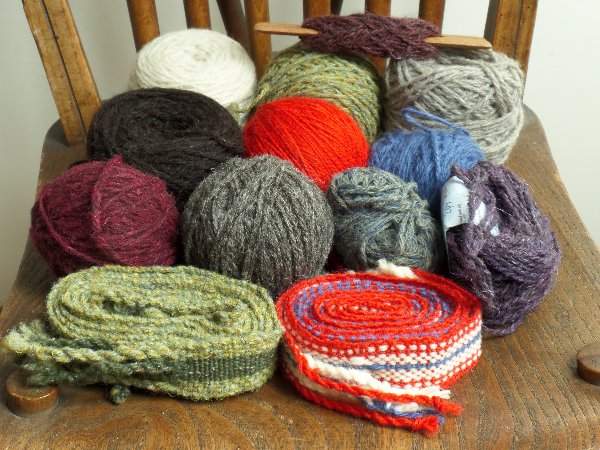
Inkle making is very old, at least 600 years. It may have come (like handfasting) from the Vikings or Saxons. Below is the Inkle loom. Banns take about 4 hours to weave.
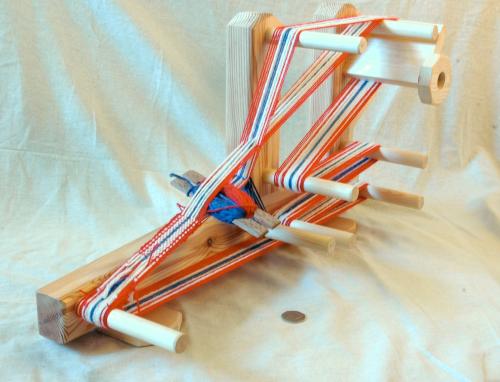
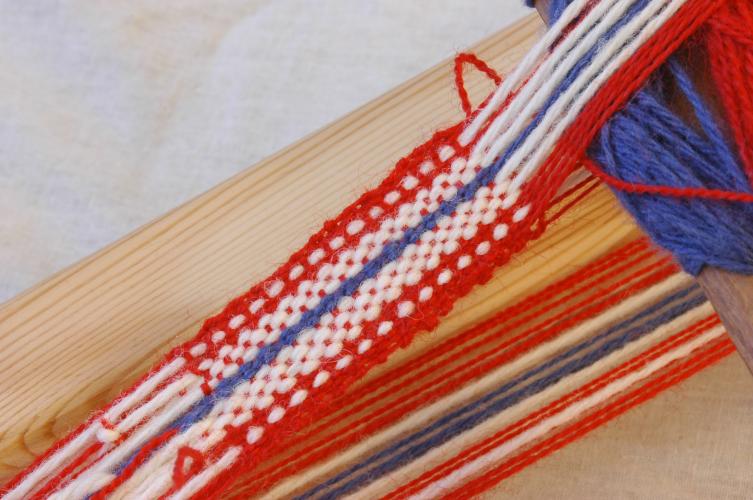
And if the weather is good, I weave in the garden
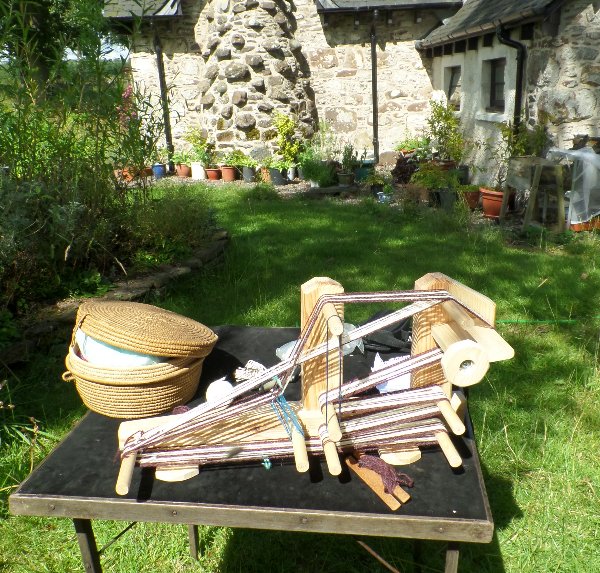
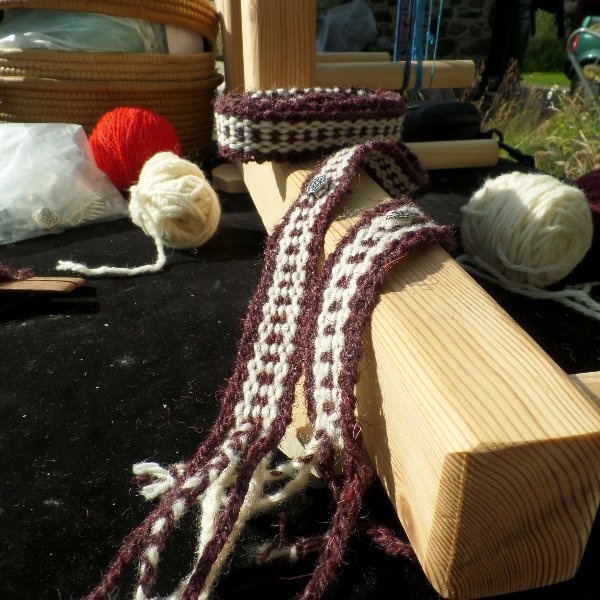
For the exchange asked for such a bann, see the booking/ fees page and be sure to select Handfasting to see the bann options.
Crosaichen Bhrìde ~ Brìde's Crosses ~ Brigit's Crosses
A gift to or from the couple
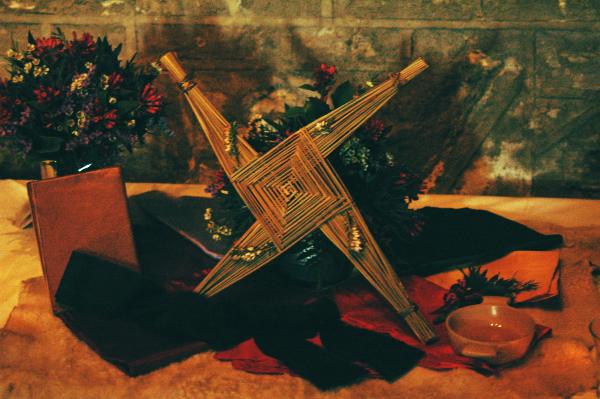
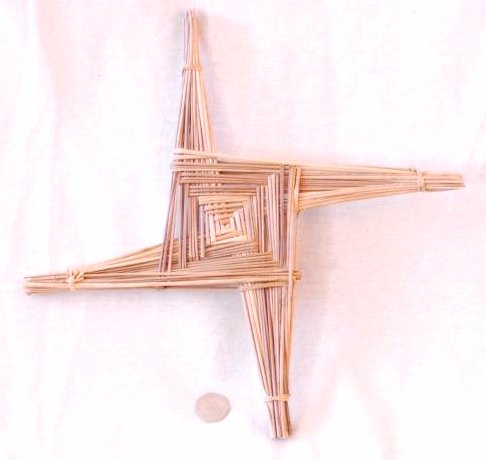
Known by many names, Brigit in Ireland and Scotland, and as Cerridwen in Wales. She is the Goddess of the hearth, fire and poetry and is the only Goddess to survive from the Celtic into the Christian pantheon of saints. These crosses, made of Rush, come from the ancient rituals honouring her. Many Irish homes have one. They are sometimes placed in the eaves of the roof, or in the cattle-byre or by the hearth to bring good luck and prosperity for the coming year. A wonderful symbol to add to the home of a newly married couple; A lovely thank you gift to or from a Bridesmaid, mother or Maid of Honour.
In the ceremony, the groom accepts the cross as an honour to the feminine. He later takes it to the home.
A Cross takes about two hours to make, which I do to order from November-January, and I can decorate it with ribbon, bell or something significant to you, if you wish. They are about 12-16" across and have a loop so that they can be hung above the hearth or a door, where it fades to a golden brown. Each cross comes in a flat cardboard box to protect it (like a pizza box).
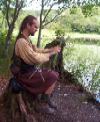
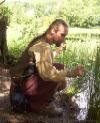


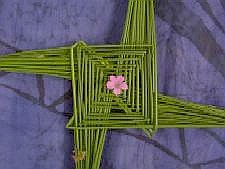
Crois Luachair - Wee Bride's Crosses
These are favours for the guests to make for themselves and to take home - a wee piece of the wedding energy - during the reception or perhaps with the women on the night before the wedding, with a wee drinkie... How good is that!?
A "craft session" of cross-making takes 40 minutes to an hour, depending on how much alcohol there is!
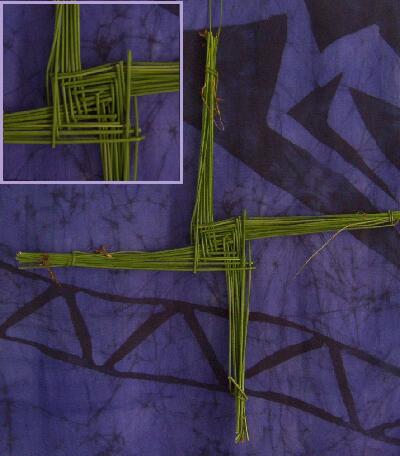
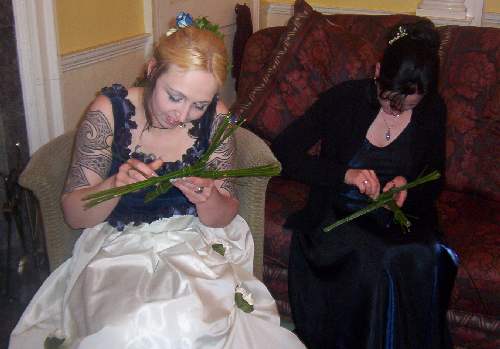
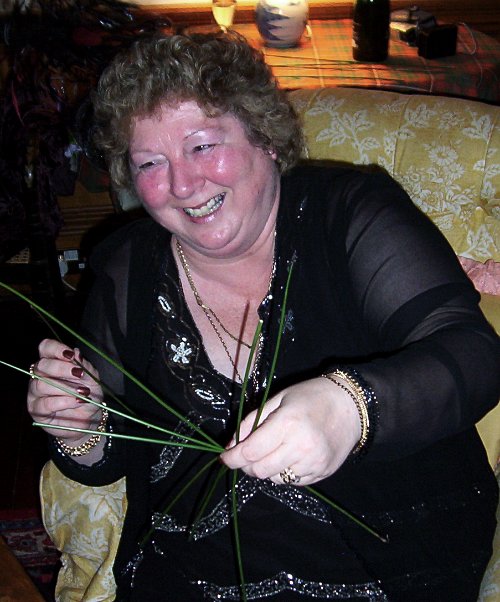
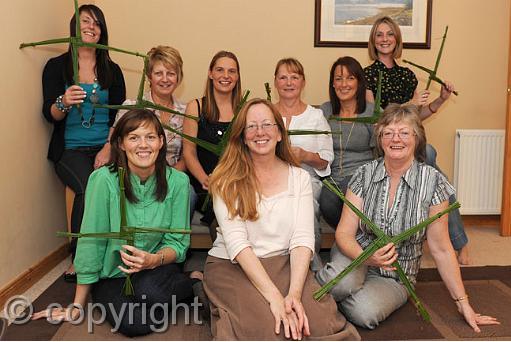
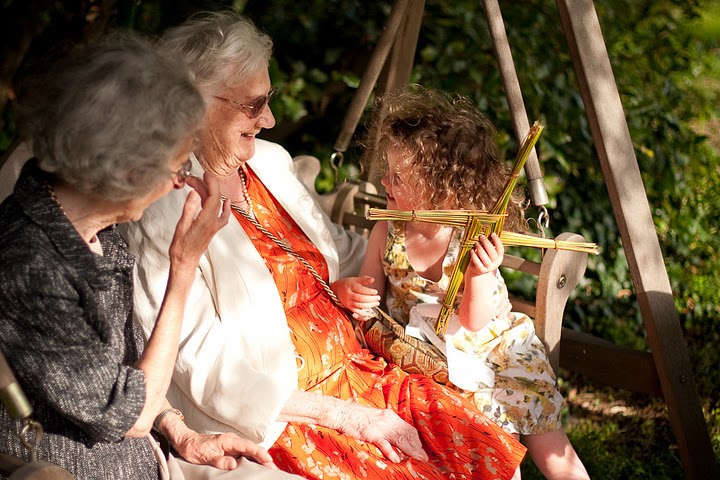
A cross made by a guest... Guests making a cross... The night before (pic by Graham Vaughan)
Bride's Cross making, England
See Fees / Booking page for the current exchange asked. It's in the MC section.
Sporan / Sporran
A sporan can also be a gift, perhaps to the groom or bride on the day just before the wedding.
